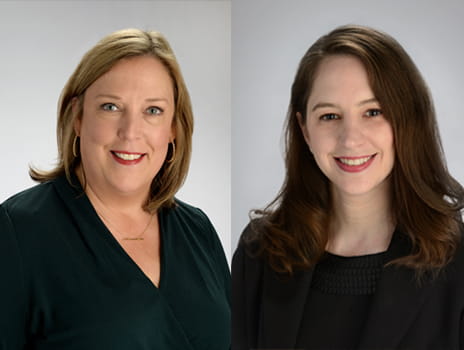March 08, 2021
A $100,000 grant from Susan G. Komen Kansas + Western Missouri will support The University of Kansas Cancer Center’s efforts to improve breast cancer disparities in the region.
African American and white women living in Kansas experience similar incidence rates in breast cancer, about 125 cases per 100,000 people. However, African American women are 42 percent more likely to die from the disease. Breast cancer incidence is lower in Latinas but is still a leading cause of death in this group. These disparities are linked to underlying health inequities, including limited access to early detection methods. For example, African American women and Latinas are less likely to receive regular mammograms. According to the American Cancer Society, when breast cancer is detected early, and is in the localized stage, the 5-year survival rate is 99 percent.
“Lack of awareness and perception of risk are major barriers to breast cancer screening in minority populations,” said Jennifer Klemp, PhD, MPH, director of the KU Cancer Center Cancer Survivorship Clinic and co-leader of the Cancer Prevention and Control research program. “In minority women where we see lower screening rates, breast cancer mortality rates are higher. However, the gap in survival rates narrows when screening is employed equally.”
Through the newly funded program, co-principal investigators Dr. Klemp and Lauren Nye, MD, breast medical oncologist and co-leader of the KU Cancer Center Cancer Care Delivery and Health Equity Disease Working Group, aim to create a community of healthcare providers who are well-versed in culturally tailored breast cancer risk assessment and screening. Called Project Breast Cancer Risk Assessment, or Project BRA, the goal is to eliminate cancer screening barriers for underserved women in Kansas.
Drs. Klemp and Nye will leverage the Project ECHO model, a knowledge-sharing approach that will convene KU Cancer Center specialists and community healthcare providers, including those affiliated with the Early Detection Works program, across Kansas. Through virtual telementoring, cancer center experts will work with local providers to identify ways to perform culturally aware, personalized breast cancer risk assessments.
A Community Advisory Board will bring together key stakeholders to engage the network of community health clinics, as well as identify, discuss and eliminate barriers to breast cancer risk assessment and screening through advocacy and policy change.
“Trusted providers are crucial in communicating the value and timing of breast cancer screening,” Dr. Nye said. “Conveying the importance of screening in a way that is culturally sensitive and personalized to an individual is necessary if we want to achieve health equity in our region.”
